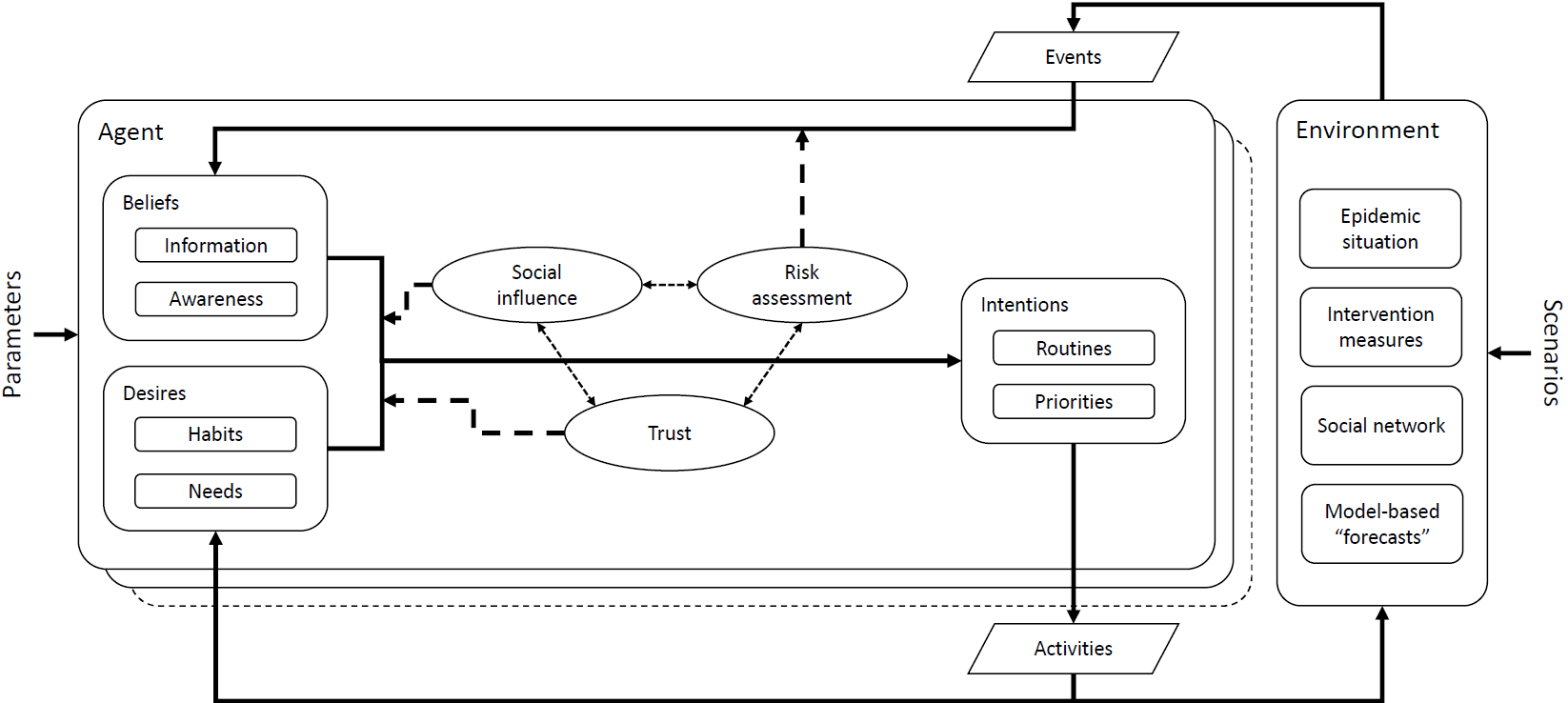
The Covid-19 pandemic has shown that model predictions based on historical data often overestimate infection numbers, which weakens public acceptance of simulation predictions as a basis for political decisions. Traditional models do not take changes in behavior into account due to perceived risks and disregard the effects of crisis communication and subjective perceptions.
The goal of SEMSAI is to explore how model-based predictions can be adjusted to better reflect reality and how communicating predictions affects future behaviour. After all, people do not continue their normal behaviour in the face of an epidemic. Instead, they become more cautious, for example, when infection numbers rise and model-based forecasts predict further escalation. The publication of the forecast thus already leads to behavioural adjustments, which in turn influence the pandemic event. In such cases, one speaks of a self-referential (reflexive) mechanism. Other reflexive mechanisms can be trust in public institutions and public communication as well as the mutual influence of people.
To realise these goals, the team around SEMSAI consists of a research consortium with three interdisciplinary partners. These include the DFKI, the Fraunhofer ITWM and the social-science-disaster research department of the FU Berlin. Together, the partners have expertise in areas of psychology, social-science-disaster research, mathematical modelling, prediction and agent-based software. The consortium will investigate feedback mechanisms and propose how both macro- and micro-scale modelling can benefit from incorporating reflexive mechanisms that map situational awareness. This should enable public authorities to assess the impact of their decisions more realistically, thereby SEMSAI will contribute to restore the decreased confidence in predictions through simulations.


Cockpit für regionales Pandemie-Management mit agentenbasierter Sozialsimulation
Website